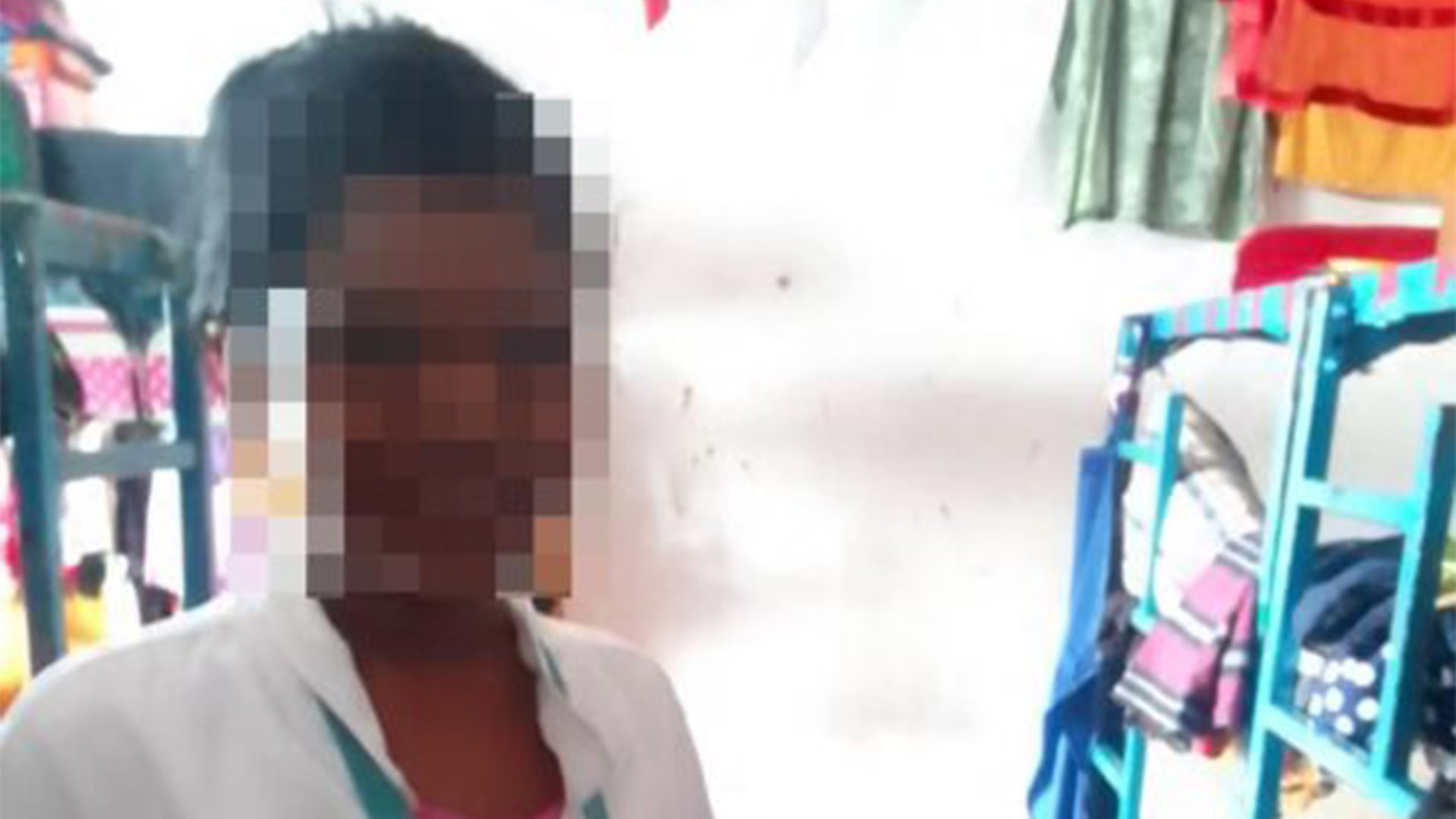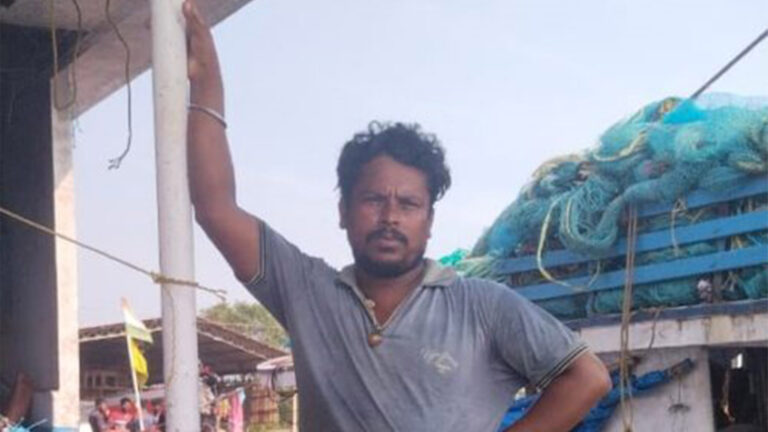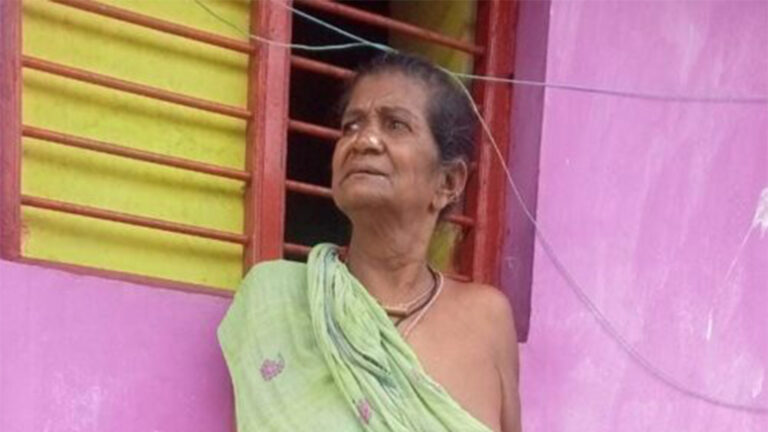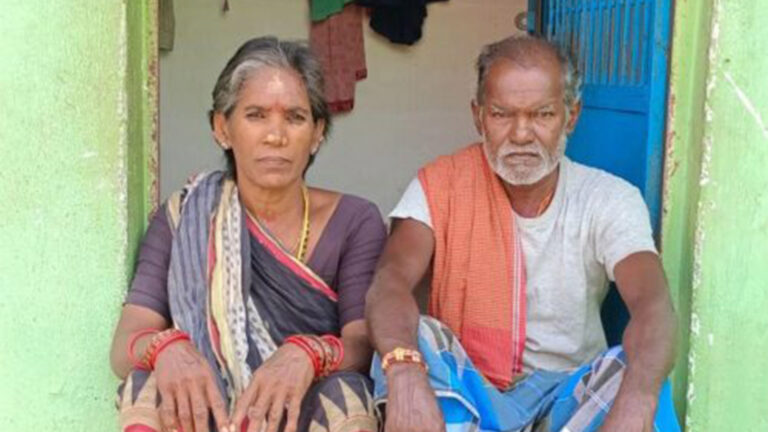Aarti Behera and Bijaya Behera are sisters. Hailing from a fishing family in the coastal village of Purnabandha, in the Ganjam district of Odisha, theirs was originally a large family. It included their father, mother, five sisters (including Aarti and Bijaya), and finally, a younger brother, the apple of their eyes. Three of the five sisters were married off. One sister has married twelve years ago, another ten years ago, and the last only two years ago, leaving behind five members at their home.
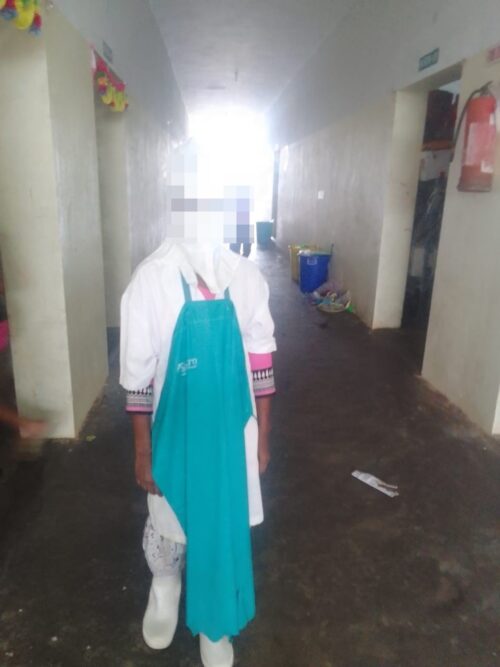
Aarthi Behera at her workplace in a shrimp processing factory, in Andhra Pradesh. Photo by Tikii Behera and Khayma Behera.
Their frequent illnesses, mainly persistent fevers and skin problems from exposure to severe cold, and the automatic deductions by the company make it difficult for them to keep track of the money spent on treatments.
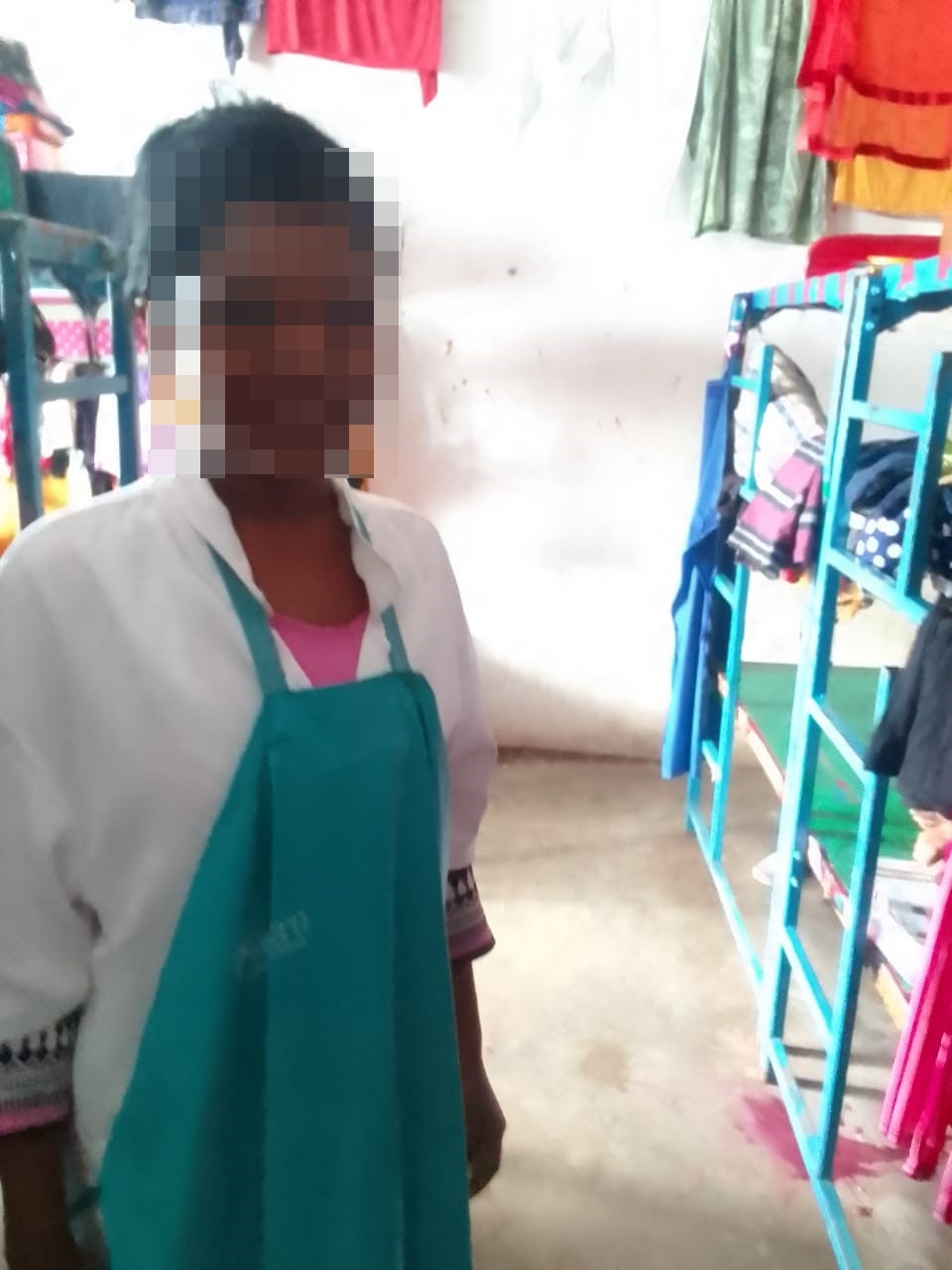
Bijaya Behera at her workplace in a shrimp processing factory, in Andhra Pradesh. Photo by Tikii Behera and Khayma Behera.
Jagan Behera, Aartiand Bijaya’s father, is an estuarine small-scale fisherman. Sushma, their mother, travels from village to village selling dried fish. Following the marriage of three daughters, the family’s financial situation deteriorated when the high interest on the loans that the family took out to pay for the sisters’ marriages piled up, forcing the girls to drop out of school in 2017. That was when Aarti and Bijaya decided to step out of their village, something they had never done before, and to earn money and help restore the family’s finances. They traveled to Singarayakonda, Andhra Pradesh, with other women from the village to work alongside them at a shrimp processing company. Nearly fifteen other young women from the village worked as daily wage workers at this company, and it seemed safe since they offered food and accommodation. After working at this place for five years, they now earn a monthly salary of nine thousand rupees each.
According to them, the living conditions are quite good, but it is unclear exactly how they categorize it as such. They shared that they find it hard to eat a proper meal during the day. Each day, the sisters separate the smaller shrimps from the larger ones for eight hours a day. Ice keeps the shrimp fresh, so they spend all their working hours in a cold environment. Besides the cold and periodic fever, their entire body is often covered in rashes. Seeking medical treatment outside the factory is prohibitively expensive for workers on their pay scale, so they turn to the company doctor. When a worker receives treatment from this doctor, even if they fall ill from working in these undesirable conditions, money is deducted from the worker’s salary, for the days the worker takes off, as well as for food and medicine. Their frequent illnesses, mainly persistent fevers and skin problems from exposure to severe colds, and the automatic deductions by the company make it difficult for them to keep track of the money spent on treatments. Once every two months, Aarti and Bijaya together send fifteen to twenty thousand rupees to their family.
I asked why they endured all this. Despite being women, why are they living away from their families, and facing many difficulties in sending money home? Aarti explained, “It became increasingly difficult to make ends meet solely on my parents’ earnings. Our family was deeply in debt following our sisters’ marriages. That is why we decided to work somewhere other than at home. We only have one younger brother, and we want him to succeed academically and in life. May he have a bright future so that he can care for our parents after we marry.” Aarti added, “For now, we are not daughters; we are our parents’ sons.”
